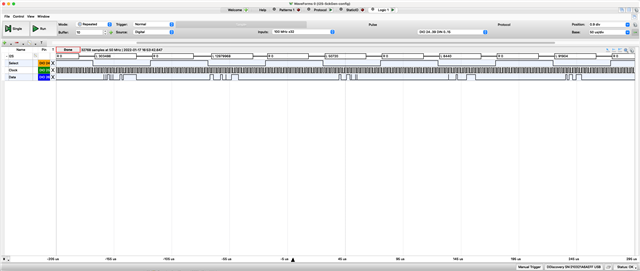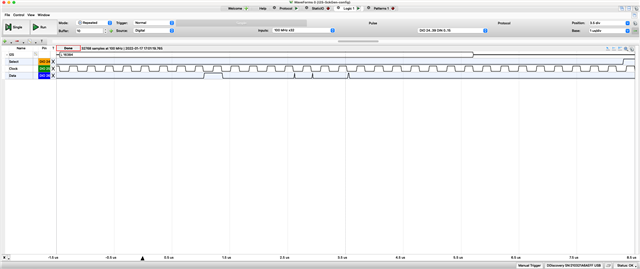Hi everyone,
I am working on interfacing the nRF52840DK with a 24-bit mems microphone INMP441 through the I2S peripheral. As multi-sources pointed out that the nRF52840 does not support 32-bit word size. (ie. WS (LRCLK) frame = 64 BCLK pulses wide) and 48kHz sampling.
As the workaround, I configured the nRF52840 as an I2S slave and provided the BCLK (48kHz) and LRCLK(3.125MHz) externally from a signal generator. The I2S works completely fine.
As moving forward, I have tried to use the PMWs to mimic the BCLK (48kHz) and LRCLK(3.125MHz) by following this GitHub repo: https://github.com/gregtomasch/nRF52_24-bit-_I2S_Microphone_Audio_Recording_Utility. However, the two PMW signals are not in sync and the output is garbled.
As a result, I would like to know is there any alternative that I can generate two in-sync clock signals from PMW or other peripheral?
Many Thanks
Anthony




